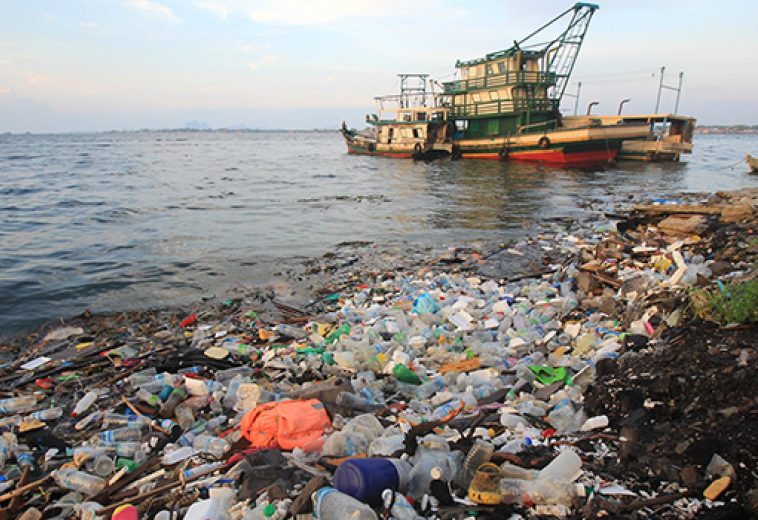As World Refugee Day is marked globally on June 20th, it’s essential to shine a light on the devastating refugee crisis plaguing Africa. The continent is grappling with the aftermath of wars like those in Sudan and Tigray, as well as numerous regional conflicts, which have led to massive population displacement. The consequences are far-reaching, affecting millions of lives and straining the resources of host countries with significant economic and social implications. This article examines the scope of displacement, the economic toll on Africa, and the efforts being made to address this pressing humanitarian issue.
Sudan’s Conflict: The country’s crisis, which escalated in 2019 following the overthrow of President Omar al-Bashir, has led to catastrophic displacement. According to the UNHCR, as of mid-2023, approximately 1.5 million people have been forced to flee their homes within Sudan, with an additional 1 million seeking refuge in neighbouring countries such as South Sudan, Ethiopia, and Uganda.
In Sudan, the influx of refugees from Ethiopia has overwhelmed local communities and strained resources. The cost of providing basic services such as healthcare, education, and sanitation is immense. Similarly, Ethiopia, already grappling with its internal displacement issues, struggles to support the large refugee population from Eritrea and South Sudan.
The economic impact is also felt in terms of lost productivity and development opportunities. Refugees often settle in regions with limited economic activities, and the sudden population surge can lead to environmental degradation and increased competition for scarce resources.
Tigray Crisis: The conflict in Ethiopia’s Tigray region, which began in November 2020, has triggered a severe humanitarian emergency. The UNHCR estimates that over 2.2 million people have been displaced internally, with more than 60,000 seeking asylum in Sudan. The conflict has severely disrupted essential services and exacerbated widespread poverty, further complicating the refugee crisis.
In the Democratic Republic of Congo, ongoing violence has forced an estimated 5.5 million people to flee their homes, with over 900,000 seeking refuge in neighbouring countries. Similarly, the Central African Republic is grappling with a significant displacement crisis, with over 700,000 internally displaced persons (IDPs) and more than 630,000 refugees in neighbouring states.
The refugee crisis has a profound economic toll on both host countries and the continent as a whole. The massive influx of refugees puts a strain on resources, public services, and infrastructure. For example, Uganda, which hosts over 1.4 million refugees primarily from South Sudan and the DRC, bears a significant financial burden. According to the World Bank, Uganda spends approximately $323 million annually to support refugees, highlighting the economic implications of hosting large numbers of displaced individuals.
According to a report by the International Monetary Fund (IMF), sub-Saharan Africa incurs an annual economic loss of around 2-3% of its GDP due to conflicts and the resulting refugee crises. With a regional GDP of approximately $1.8 trillion in 2022, this translates to an annual loss of around $36-54 billion.
Furthermore, a study by the African Development Bank (AfDB) reveals that conflict-affected countries in Africa experience a significant slowdown in GDP growth rates, with a reduction of 2-3 percentage points annually. This economic downturn not only affects the countries directly involved in conflicts but also their neighbours and trading partners, who are often negatively impacted through trade and economic linkages.
The economic fallout of conflicts and refugee crises extends beyond the immediate costs, as it also leads to increased military expenditures, reduced foreign direct investment (FDI), and declining tourism revenues. The uncertainty and instability surrounding conflict-affected countries often erode investor confidence, resulting in capital flight and decreased FDI inflows.
Additionally, the strain on public services and infrastructure, such as healthcare, education, and transportation systems, can significantly reduce the capacity for long-term development projects, perpetuating economic stagnation. This can have far-reaching consequences, including limited access to essential services, reduced economic opportunities, and decreased living standards for affected populations.
“The ongoing refugee crisis in Africa is a grave concern, undermining our economic and social progress. The displacement of millions due to conflicts, such as those in Sudan and the Tigray region, is unacceptable. As African leaders, we must strengthen our resolve and cooperation to address the root causes of these conflicts. We urge the international community to support our efforts in restoring peace and stability, ensuring that all Africans can live in dignity and security,” as quoted by President Paul Kagame of Rwanda.
African Union (AU) and regional efforts
The African Union has been a key player in addressing the refugee crisis on the continent. Through its Agenda 2063, the AU has outlined a vision for a peaceful and prosperous Africa, emphasising the need to tackle the root causes of displacement. To this end, the AU has established the African Union Humanitarian Agency to coordinate humanitarian responses, including those related to refugees.
Regional organisations such as the Intergovernmental Authority on Development (IGAD) and the East African Community (EAC) are also working together to enhance coordination and support for refugees. For instance, IGAD has developed a comprehensive regional framework for finding durable solutions for refugees and IDPs, focusing on integration and self-reliance. This approach aims to address the complex needs of refugees and IDPs, ensuring they can rebuild their lives and become self-sufficient.
African countries hosting large numbers of refugees have implemented various strategies to manage the crisis. Uganda’s progressive refugee policy allows refugees to work, move freely, and access public services, promoting self-reliance and reducing dependency on aid. Ethiopia has also adopted a new refugee law granting refugees more rights, including access to education and work opportunities.
International Response
International donors have made significant contributions to alleviate the situation. In 2023, the United Nations High Commissioner for Refugees (UNHCR) allocated a substantial $2.1 billion for emergency assistance and protection services. The World Food Programme (WFP) provided an additional $1.5 billion in food aid, while the United States, through various programmes, including USAID, contributed around $3 billion annually. The European Union chipped in with approximately €500 million ($550 million) for humanitarian aid, and the United Kingdom offered £400 million ($530 million) for refugee support.
Japan also made a significant contribution of around $200 million, focusing on health, water, and sanitation initiatives. International non-governmental organisations (NGOs), such as Médecins Sans Frontières (MSF), Save the Children, and Oxfam, collectively mobilised hundreds of millions of dollars annually. In total, international donors contributed approximately $8 billion in 2023 to address the refugee crisis in Africa. Despite these efforts, the ongoing crisis demands continued and increased support to achieve sustainable solutions.
The refugee crisis and ongoing conflicts have a profound and multifaceted impact on Africa’s economy. The direct, indirect, and opportunity costs associated with these crises result in substantial GDP losses, hindering the continent’s overall economic growth and development. Addressing the root causes of conflict and providing sustainable solutions for refugees are essential steps towards mitigating these economic impacts and fostering a more stable and prosperous Africa.


